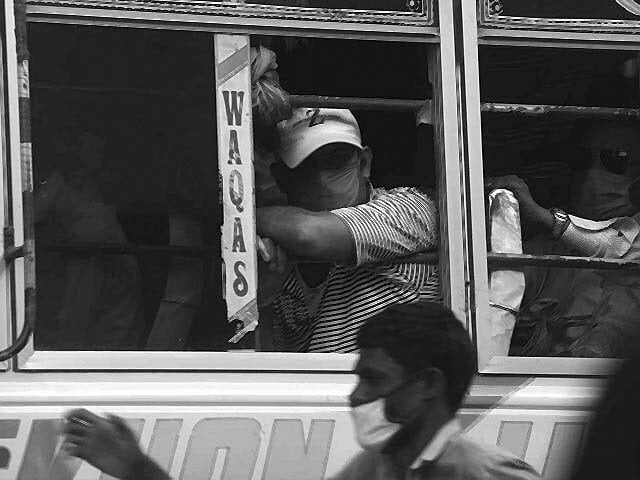Which brings me back to what I started talking about, death. It’s not just the manner in which people are dying from Covid-19, isolated from their loved ones and in a lot of pain, but also the way the process of grief is being altered in its aftermath. We just lost a family member to this wretched illness, who was also suffering from cancer, and it’s possibly the only time when our family did not hold a funeral. There were no last goodbyes, hugs, comforting silences, shared tears or even just a glimpse of the dearly departed. In other words, the stages of grief are now impacted in ways that are new.
Having lost my father a few years ago, I remember just standing next to his body moments before they took him away. The way I had stared at him that day and had not moved a single muscle, is possibly the longest I had ever really ‘looked’ at him. We may see our parents every single day, spend time with them but it was only in those few hours that I noticed so much that I never had before. All his wrinkles, his moles, the way his skin would fold around his cheeks, the way it glowed, and the familiarity of this face that I knew I would never get a chance to see again. I stared at him because I wanted to hold on to that memory. But surprisingly, that face is now blurry when I think about it, but the feeling remains, the feeling of being full. Because I was able to give myself that time to just be with him. Even if he didn’t respond, even if I couldn’t speak to him anymore.
But today with more and more people dying and their families are not being able to look at them for that one last time due to the fear of contracting the virus. I can’t help but think of all those will not get to experience that closure. It is also making me think of all those who lose family members to plane crashes or bomb blasts, where burying their loved ones is not an option. To say it is tragic would be an understatement.
However, ‘a sorrow shared is a sorrow halved’ and that is exactly what many across the globe are unable to do at the moment. Friends and family are unable to provide physical support by simply being there. Yes we can call using apps such as Skype and Zoom but human touch cannot be replaced by technology. It can aid but it cannot heal.
Having said that, I understand the process of grief is different for everybody. Some may need more space than others, some may want to talk about it, some may not. There is no ‘right’ or ‘wrong’ way to grieve. But to have that option being taken away from you is what causes further helplessness at a time when you are already helpless in the face of death and the deadly virus. What do you do when you are barely adjusting to the new ‘normal’ brought on by a global pandemic and are now also made to adjust to living life without your parent, spouse or friend.
When the process of grief gets disrupted or interrupted, symptoms of complicated grief may start to show.
“In complicated grief, painful emotions are so long lasting and severe that you have trouble recovering from the loss and resuming your own life.”
It is then imperative if not necessary to adapt a new way of mourning where we still allow ourselves to grieve. Where we still reach out to our loved ones and be there for them in the same manner we would have had we been allowed to, only now we may just have to do it virtually. Where we share stories of those whom we have lost, and cry together or laugh together. If anything, the weight that our words carry now, or a picture we may post or videos we may share matter now more than ever and may just be a new way of ‘being there’. Perhaps now, even though it may never be the same, technology will just have to make up for physical touch and comfort.



COMMENTS
Comments are moderated and generally will be posted if they are on-topic and not abusive.
For more information, please see our Comments FAQ